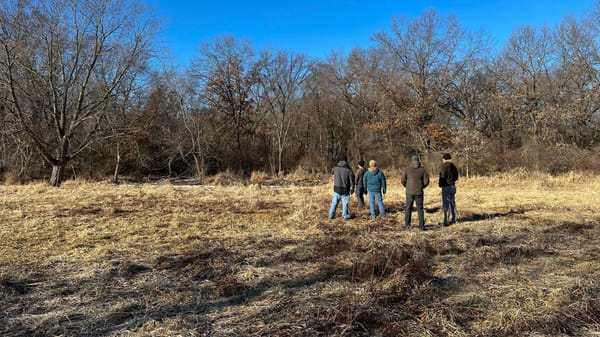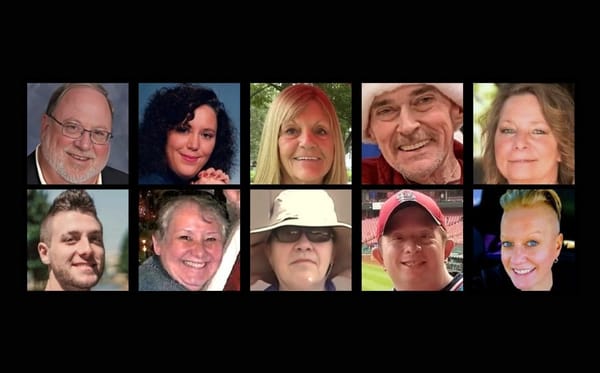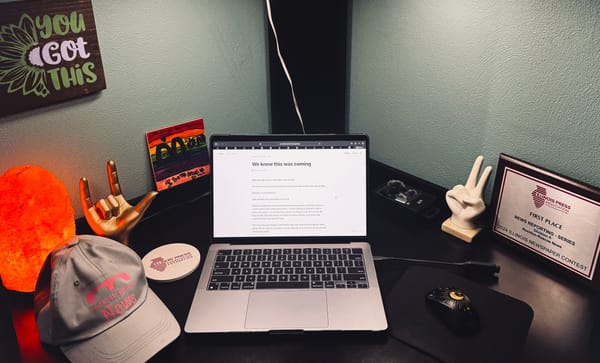Roscoe trustee and pharmacist helps make prescription drug donation and re-use possible in Illinois
Elizabeth Lindquist is a co-founder of the Illinois Prescription Drug Repository Coalition.

A Roscoe Township trustee scored a bipartisan victory on the state level yesterday when Governor Pritkzer signed The Illinois Drug Reuse Opportunity Program Act (HB119) [I-DROP] into law. This bill, which allows drug donation and re-use, will particularly benefit low-income persons and will take effect January 1, 2022. The governor announced the signing as part of a package of pharmacy legislation. The bill passed the Illinois House on April 21 and the Illinois Senate on May 27.
Roscoe resident Elizabeth Lindquist, PharmD, oncology pharmacist at SwedishAmerican Regional Cancer Center in Rockford, is a co-founder of the Illinois Prescription Drug Repository Coalition, the group who led the effort to pass this legislation. Lindquist has been a member of the Roscoe Township Board of Trustees since 2017.
“At our clinic, patients and family members regularly bring in perfectly good, potentially life-saving meds, safely packaged in blister packs, asking if the meds can be donated to uninsured patients,” says Lindquist. “Patients and families know how much these drugs cost and were shocked and dismayed to hear that disposal was their only option. That now changes.”
In many states, some unused medication can be donated to benefit patients in need. Now Illinois has become one of those states. Donated medication must be unexpired and in sealed, tamper-evident packaging. Controlled substances are not eligible for donation. Unfortunately, medication dispensed in amber pharmacy vials is not eligible for donation either.
Alan Hutchison, MD, PhD, of University of Chicago Medicine, said, “Now that Governor Pritzker has signed I-DROP, I'm looking forward to introducing patients, institutions, and fellow providers to this exciting new resource of affordable medications as well as a new solution for their unneeded safe and unexpired medications.”
In 2020, over half of Illinois adults reported being either “worried” or “very worried” about affording the cost of prescription drugs, according to a survey by Altarum’s Healthcare Value Hub. Meanwhile tens of millions of dollars of medication paid for by Illinoisans is incinerated or flushed into Illinois groundwater every year.
The Illinois Drug Reuse Opportunity Program Act (I-DROP) combines 14 years of experience across 38 states to legalize drug donation and reuse. I-DROP will allow individuals and institutions to donate medication to participating pharmacies and clinics. The pharmacies and clinics will then dispense the donated medication at low or no cost to patients in need.
SafeNetRx, the Iowa prescription drug repository program, distributed $7.6 million worth of donated medication in 2020. The Georgia Drug Repository Program has saved patients an average of $1200 per patient per year.
Rep. Maurice West of Rockford was one of the bill’s first co-sponsors. “Right now most unused meds are incinerated, but we know they end up in landfills as well, including the Winnebago Landfill, where they can contaminate our groundwater,” said West. “Many of these meds are safe to be donated and dispensed to people in need, across our region and our state. I’m proud to have helped send this bill to the Governor for his signature today.”
Rockford region General Assembly support was bipartisan. Republican Sen. Dave Syverson’s support as chief co-sponsor was critical for passage in the Senate, and Rep. Andrew Chesney of Freeport was an early co-sponsor in the House.
"Thanks to grassroots activists from across the state, we'll have the opportunity to re-use many of these precious drugs to help patients in need," said Lindquist.
Patients across Illinois will benefit. “The Illinois Association of Free and Charitable Clinics is grateful to all who supported this essential legislation. In 2022, donated medicines will be available at Free and Charitable Clinics for the most vulnerable, yet resilient, uninsured and underinsured patients,” said Melissa Maguire, LSW, Executive Director Illinois Association of Free and Charitable Clinics.
The Illinois Prescription Drug Repository Coalition will assist with I-DROP implementation to maximize its benefit for patients and the environment.





